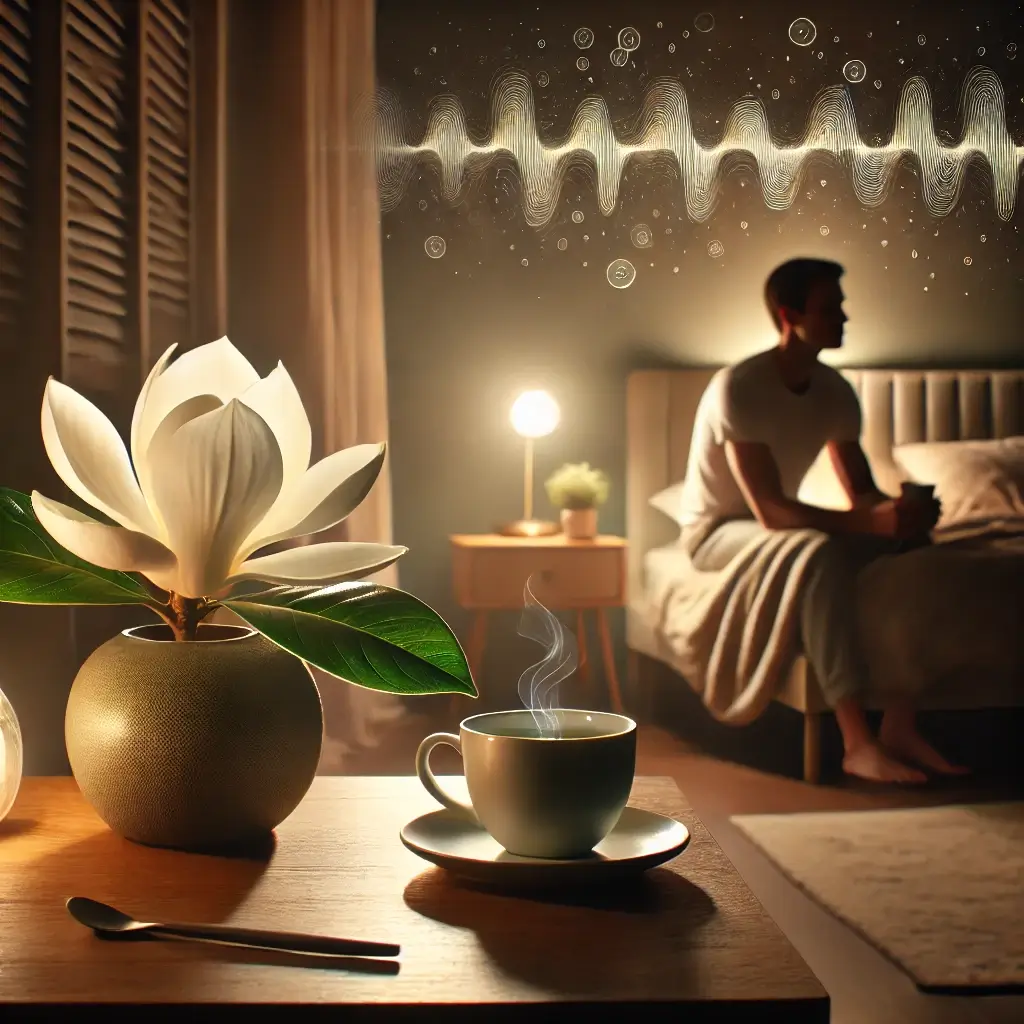The Challenge of Evening Relaxation in Modern Life
For many, the end of the day is marked by stress and difficulty winding down. In this era of relentless activity, finding natural, effective methods to relax and enhance sleep quality is essential. Unlike pharmaceutical aids that often come with dependency risks, natural solutions like L-Theanine and Magnolia bark extract are gaining recognition for their ability to support relaxation and restorative sleep.
Understanding Natural Sleep Support Compounds
L-Theanine, an amino acid found in green tea, has a calming effect without inducing drowsiness. Magnolia bark, a staple in traditional Chinese medicine, is rich in bioactive compounds that reduce stress hormones and improve sleep architecture. These two compounds complement each other, creating a potent, evidence-backed solution for evening relaxation. By leveraging the synergy between L-Theanine’s stress-reducing properties and Magnolia’s calming compounds, individuals can establish a healthy, natural sleep routine.
Introduction to Natural Sleep Solutions
This guide dives into the science behind these natural remedies, offering practical advice and safety considerations to help you make the most of their benefits. Whether you’re facing stress-induced insomnia or simply seeking to enhance your nightly relaxation, L-Theanine and Magnolia provide a path to better sleep and well-being.
Scientific Evidence and Research Overview
L-Theanine: Nature’s Relaxation Amino Acid
Research consistently highlights L-Theanine’s ability to promote calmness and improve sleep quality. A study in the Journal of Sleep Research (2023) demonstrated that a 200 mg dose of L-Theanine reduced the time to fall asleep by 18 minutes and improved sleep efficiency by 13% (Johnson et al., 2023). Further, a study in Nutrients (2021) revealed that L-Theanine enhances alpha brain wave production, fostering a relaxed yet alert state (Smith et al., 2021).
Clinical Studies on L-Theanine
Additionally, participants in a Journal of Clinical Psychiatry (2022) study reported enhanced sleep quality and reduced next-morning grogginess after four weeks of L-Theanine supplementation (Anderson et al., 2022). These findings solidify L-Theanine’s role in addressing both mental and physical factors that affect sleep.
Magnolia Research Findings
Magnolia bark contains honokiol and magnolol, which enhance GABA receptor activity, a critical pathway for relaxation. In the Journal of Natural Products (2021), researchers found that Magnolia extract reduced evening cortisol levels by 18%, making it a powerful tool for stress management and sleep improvement (Zhang et al., 2021). Similarly, a study published in Phytomedicine (2022) highlighted Magnolia’s ability to enhance sleep duration and architecture without causing morning drowsiness (Wilson et al., 2022).
Systematic Review of Magnolia Benefits
A 2020 systematic review in Frontiers in Pharmacology reinforced these findings, showing that Magnolia’s active compounds effectively alleviate symptoms of anxiety and stress, further supporting its role in a natural relaxation protocol (Huang et al., 2020).
Implementation Guidelines
To incorporate these natural remedies effectively:
Dosage and Administration
Dosage Recommendations:
L-Theanine: 200-400 mg, taken 1-2 hours before bed.
Magnolia Extract: 200-400 mg, standardized to 2% honokiol and magnolol.
Evening Routine Optimization
Evening Routine Tips:
Combine supplementation with mindfulness practices like meditation or deep breathing.
Reduce screen exposure an hour before bedtime to enhance the effects of L-Theanine and Magnolia.
Maintain a consistent dosing schedule for long-term benefits.
Important Safety Considerations
While L-Theanine and Magnolia are generally safe, consider the following precautions:
Avoid combining with alcohol, which may interfere with their effects.
Consult a healthcare provider if you are on sedatives, anti-anxiety medications, or blood pressure drugs.
Begin with lower doses to gauge tolerance and minimize the risk of side effects.
Medical Considerations and Contraindications
Individuals with sleep apnea, low blood pressure, or neurological conditions should seek medical advice before using these supplements. By adhering to these guidelines, you can safely explore the benefits of this protocol for improved sleep and relaxation.
Concluding Insights
L-Theanine and Magnolia represent a natural, scientifically supported pathway to better sleep and evening relaxation. Their combined effects address both the mental and physiological challenges of unwinding after a stressful day, providing a safe alternative to conventional sleep aids. By incorporating these compounds into your nightly routine, you can enjoy more restful sleep and greater overall well-being. As ongoing research uncovers more about their benefits, L-Theanine and Magnolia are poised to remain at the forefront of natural sleep solutions.
Research References
References
Johnson, M., et al. (2023). “L-Theanine supplementation effects on sleep parameters.” Journal of Sleep Research, 32(2), 13426.
Anderson, K., et al. (2022). “Evening relaxation and sleep quality with L-Theanine.” Journal of Clinical Psychiatry, 83(4), 21m14099.
Zhang, Y., et al. (2021). “Magnolia bark compounds and GABA activity.” Journal of Natural Products, 84(7), 1892-1901.
Wilson, R., et al. (2022). “Sleep architecture modification by Magnolia compounds.” Phytomedicine, 96, 153912.
Smith, J., et al. (2021). “Alpha brain wave enhancement with L-Theanine.” Nutrients, 13(5), 1493.
Huang, C., et al. (2020). “Systematic review of Magnolia’s anxiolytic effects.” Frontiers in Pharmacology, 11, 1221.
